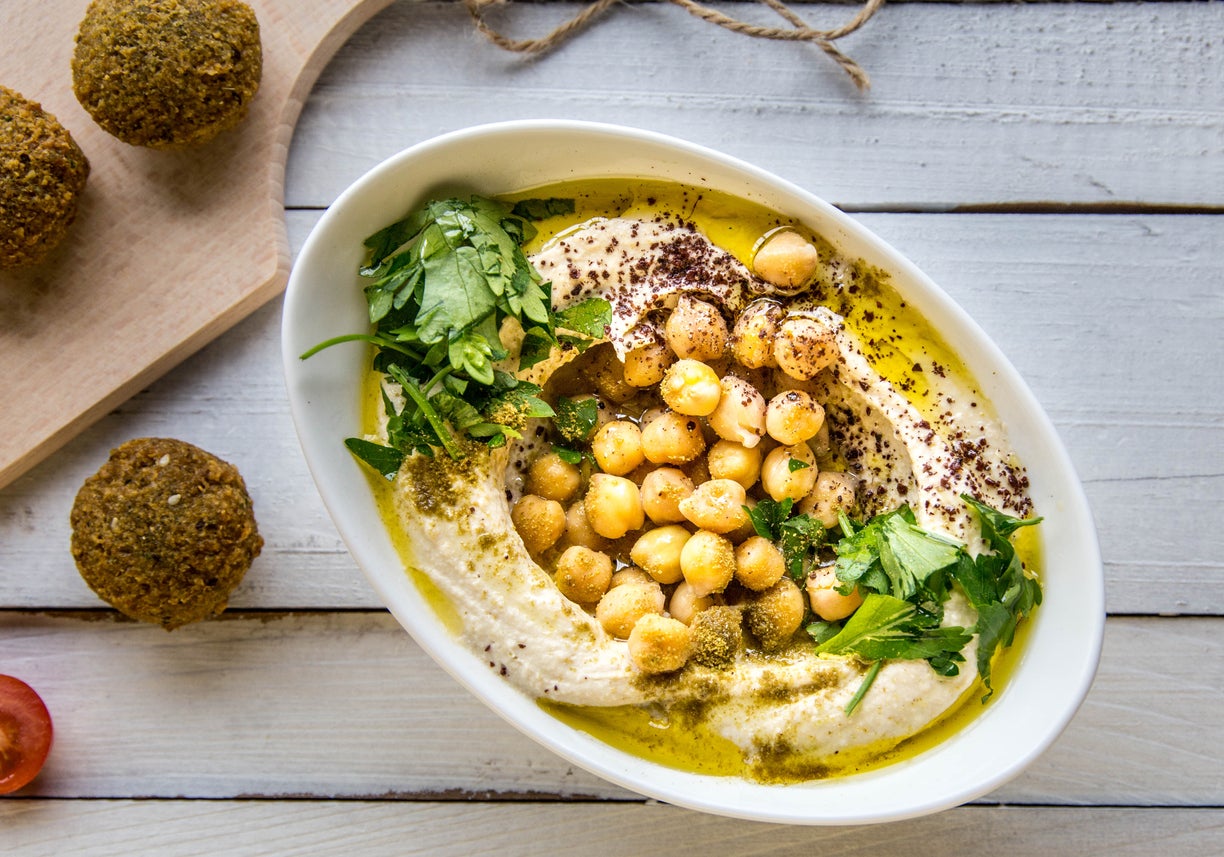Is hummus healthy or not?
Is it fattening or a healthy source of protein?

It’s everyone’s favourite chickpea-based dip.
Whether you prefer yours slathered inside a warm fluffy pitta bread and topped with crumbly falafel or simply as a dip for crisps and crudités, it’s hard to beat hummus.
But as delicious as it is, there’s a lot of confusion around whether hummus is actually good for you. Is it a good source of protein? Or just pretty fattening?
With picnic season about to commence, we asked two nutrition experts to reveal the truth about hummus.
“Despite the misconception that hummus is fattening, traditionally-made hummus is a wholesome food made with chickpeas, olive oil - a heart-healthy unsaturated fat - tahini, lemon juice and garlic,” leading Harley Street Nutritionist Rhiannon Lambert explained to The Independent.
“In addition to being a good source of protein and fibre, chickpeas used in hummus are high in iron, folate, phosphorus and B vitamins. It can be a particularly good snack for vegetarians and vegans who may be lacking in these nutrients.”
And according to specialist dietitian Nichola Ludlam-Raine, the fact that chickpeas are the main component in hummus means it counts towards your five-a-day - one portion is three heaped tablespoons.
In supermarkets these days, we’re spoilt for choice when it comes to hummus varieties - if you’re bored of caramelised onion and roasted red pepper, why not mix things up with Moroccan topped or beetroot and quinoa hummus?
But it’s with shop-bought varieties that you need to be a bit more careful.
“Not all hummus is created equally,” Lambert explains. “The quality of commercial hummus varies widely and not everything you see on the store shelves is traditionally made. Some have excess oil and sugar.
“Checking the ingredients list is key, and even better, it is so simple to make yourself at home!”
It’s also worth noting that hummus, as a nutrient-dense snack, is higher in calories than some other dips - a quarter of a standard-sized tub usually contains around 150 calories, and we all know how easy it is to polish off a whole tub in one sitting simply as a pre-dinner snack.
Of course in an ideal world, we’d all be making our own hummus at home - it’s not difficult, but it’s certainly more effort than grabbing a tub from the supermarket shelf.
The bottom line? Hummus is good for you provided you’re not eating one that’s packed with extra ingredients like sugar, just be wary of how much you’re eating.
Join our commenting forum
Join thought-provoking conversations, follow other Independent readers and see their replies
Comments
Bookmark popover
Removed from bookmarks